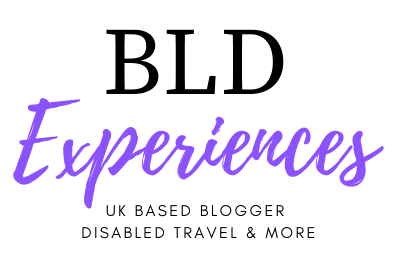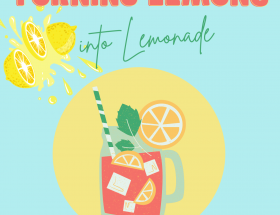2022’s Disability History Month theme was “Disability, Health and Well-Being”. I had initially written this blog back then to discuss the impact that accessibility (or lack there), views on disability and community can have on a disabled person’s well-being.
Lack of accessibility has a massive impact on disabled people, especially our well-being. It can lead to feelings of loneliness and isolation as they are unable to access and connect their community. This makes it difficult to see loved ones and experiencing new things with them. Finding accessible alternatives are important to reduce these feelings.
I’ve had too many experiences where I had been invited out but had to search the accessibility or found out the place isn’t accessible. When an alternative plan to include me wasn’t suggested. It has made me feel really crappy and like I am a burden. Which has had an impact on my self-esteem. To be honest, you shouldn’t be friends with people that don’t try to include you and find accessible alternatives. But I guess it is also hard when those people that don’t make adjustments are your family. But trust me, there are people out there that will search whether a place is accessible before inviting you. Or find another if it isn’t. I am super grateful for those in my life that are like that!
Society and Disability
The Medical Model of Disability makes out that disabled people have failed because of their conditions. Completely ignoring societies failure to allow everyone, disabled and non-disabled alike, to thrive. However, the Social Model of Disability acknowledges societies failure – the derogative attitudes and systemic barriers that disabled people face. Unfortunately, too many seem to follow the medical model in terms of how they think about disability instead of adopting the social model. Disabilities and people with disabilities are often not discussed due to the harsh stigmatisation of us within society. Which leads to a lot of ableist thoughts and behaviours.
As a result of societies treatment of us, many disabled people experience internalised ableism. Which causes difficulties connecting with and accepting their disabled identity. I can’t lie, unfortunately this was me when I was young. Whilst I grew up seeing a Black wheelchair user on British TV I found it difficult to connect and accept my reality. Especially with people around me constantly saying things like ‘you’re not disabled’, ‘don’t call yourself disabled’. The doubt and disbelief around my disability from family, strangers and medical practitioners didn’t help.
Whilst increasing accessibility for disabled people is integral to our health and well-being. Having access to a disabled community is so important. I can’t tell you how amazing it is to talk to a person that relates to your reality without them feeling like your life is just so difficult and unbearable. Well in a way you can get it if you are a Black person, someone from a minoritiorised ethnic group or a LGBTQ+ person. It’s like you’ve come up from under water, releasing a breath you were holding. Knowing you are not alone and being able to share in that is such an important thing! Especially if they are a similar age to you or like similar things to you.
Finding Your Disabled Community
My mum was the only one that could relate to my disability when I was younger. Despite how helpful she was, I needed people closer to my age and stage of life to process this with. Over the last… let’s say 7 years, I’ve really been able to find my community. People that I have a shorthand with regarding disability. What has been really helpful is also having those that understand the intersections of disability and race. I had a white disabled friend during my undergrad, we noticed how different we were treated by non-disabled people. So being able to talk to people that understand and experience the nuances of living in England as a Black disabled person was life changing for me.
Being around disabled people that understand the highs and challenges of life is super important. I have also seen how helpful it is for those that are discovering their lives as newly disabled people (well maybe more so newly diagnosed or worsened condition) to have other disabled people in their lives. You learn what to expect; which type of support to seek; how to overcome the internalised ableism of feeling lazy when you actually need to rest. Having people to verbalise how you are feeling and that to some level understand it better than anyone else, has helped me cope and even thrive. Because of this I created a small space for people like myself, Black Disabled women. A space for us to be open with each other without judgement and just understand how/ what the other is going through. Finding your community helps you push through the bad days even more. I want to have another space so that newly physically disabled Black womxn and non-binary people (18+) can come together and support each other through this new phase in their lives.
Share this blog with someone you know that might relate in some way! Or get in touch with me via IG or email because through finding our community, we can find ourselves.









